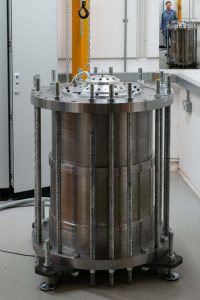Giving electric vehicles a boost
Range anxiety, its real!
We’ve all experienced the inconvenience of a flat phone battery, but how much worse could it be if it were your electric vehicle battery running out? Range anxiety is real. As my electric car started to die, off went the heating, down went the speed. A case of hope and prayers we would make it back home.
The culprit was not bad planning but an unexpectedly long detour. How nice to be able to pull in and get a boost of 50 miles+ charge in 3 mins, but the only option now is more like 30 minutes – unless you are lucky to be passing an ultra-rapid charging station. These are being rolled out on motorways but still will be few and far between when ideally, we need them every few miles.
The problem is getting local grid power connections of up to 350kW to the charge points, however not only is this expensive but it’s also wasteful. For a typical demand of twenty of 3-5 mins charges a day, utilisation is only 5%. The answer is to buffer the energy in safe, low cost flywheels, which are being developed by Levistor Ltd. Existing 50kW “rapid” chargers can be boosted to up to 350kW by adding the storage which avoids the need to upgrade the grid.
Why not batteries?
Batteries are not suited to this harsh duty of around 10 thousand cycles a year. As we all know, they degrade with high discharge cycles; Flywheels offer a better solution since they do not degrade.
Flywheels have been around for a long time, they can be used for electric storage by mounting an electrical machine on the flywheel rotor. They are very reliable with modern designs having low losses. The problem is costs for most commercially available flywheels are too high; it is typically cheaper to a use a Lithium Ion battery with massive overcapacity. This overcapacity means the battery undertakes what is described as “micro-cycles” which allows it serve high power, high cycle applications.
However, the overcapacity factor required for this duty is over ten to give 10 years life, which means the battery must be costed for 10 times the capacity needed, making Levistor flywheels competitive. By use of low-cost steel in a laminated fail safe design, Levistor flywheels can operate safely above ground without need of heavy containment or bunkers. There is also minimal fire risk, unlike Lithium Ion, which is important given many rapid chargers are located within petrol filling stations. Highways England have partnered with Levistor in this exciting development which will help them in supporting the transition to electric transport.

Author: Professor Keith Pullen, CTO Levistor Ltd

